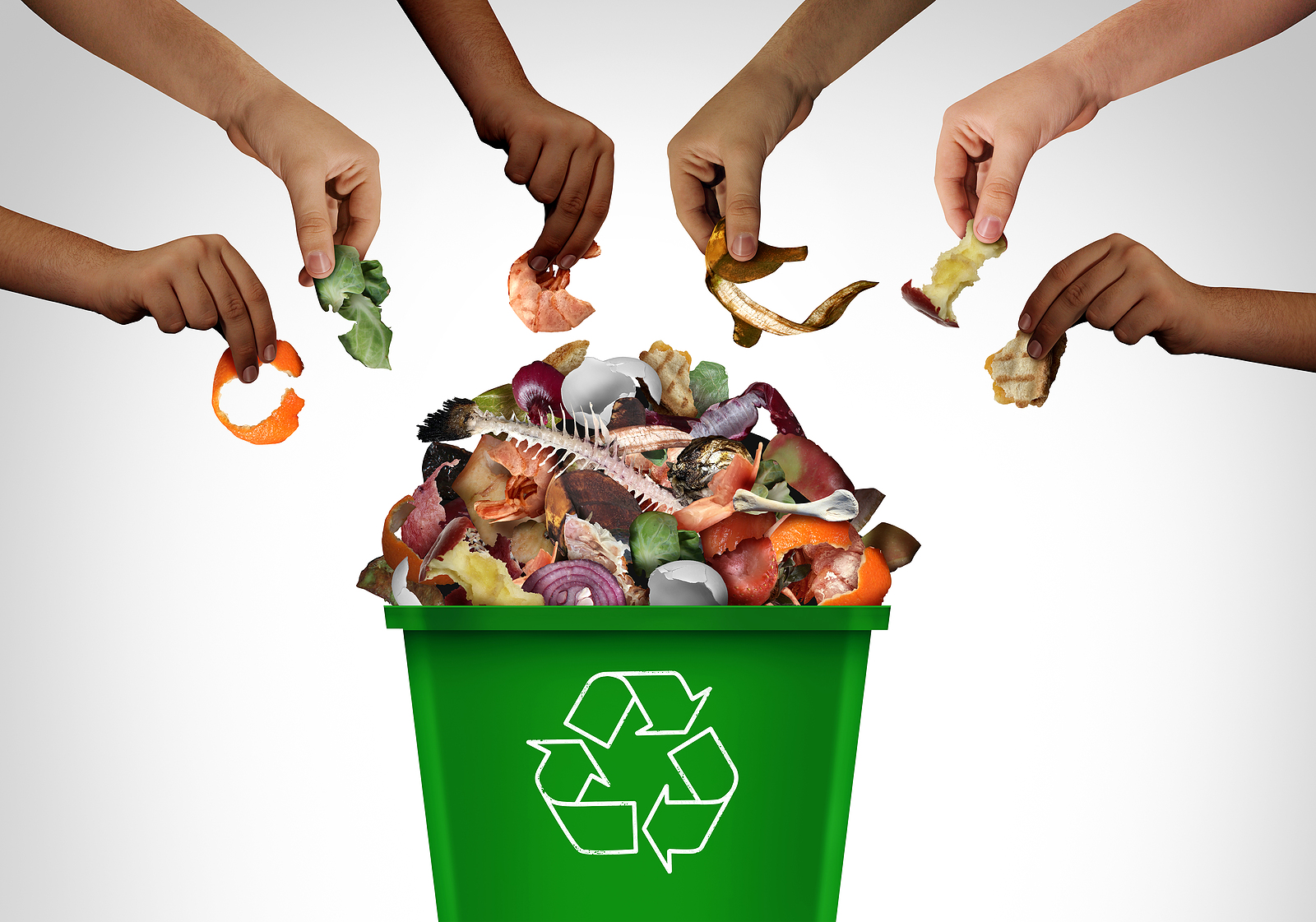
What is Food Compost? Unveiling the Green Solution with Bay Area Trash Compactor
In the bustling heart of the Bay Area, where innovation thrives, there’s a revolution quietly taking place, and it’s in the realm of waste management. As environmental consciousness grows, more people are becoming aware of the importance of sustainable waste disposal. One significant player in this movement is food compost. In this blog, we’ll dive deep into the world of food compost, exploring its benefits, how it works, and how Bay Area Trash Compactor can help you embrace this eco-friendly solution.
The Green Revolution in Waste Management: Understanding Food Compost
What is Food Compost?
Food compost is a natural process that transforms organic waste materials, primarily food scraps, into nutrient-rich soil conditioner. This sustainable practice not only reduces waste going into landfills but also produces valuable compost that can enrich soil and promote healthier plant growth.
The Science Behind Composting
At its core, composting relies on microorganisms such as bacteria and fungi to break down organic matter. These microorganisms require oxygen, moisture, and a balanced mixture of green (nitrogen-rich) and brown (carbon-rich) materials to thrive. As they decompose organic waste, they generate heat, which speeds up the process.
The Historical Roots of Food Compost
The practice of composting, including food composting, has a long and rich history that dates back centuries. It’s a testament to the enduring wisdom of using organic waste to enrich the soil. Let’s take a journey through time to explore the history of food compost and understand why it has become increasingly popular today.
Ancient Beginnings
Composting is not a new concept; it has ancient roots. In fact, records of composting date back over 2,000 years to ancient civilizations. The Greeks and Romans are known to have practiced composting to improve agricultural productivity. They realized that decaying organic matter could be used to enhance soil fertility, and thus, food composting was born.
Traditional Agricultural Practices
Throughout history, various cultures incorporated composting into their agricultural practices. In China, for example, the use of night soil (human waste) as compost dates back thousands of years. Similarly, farmers in Japan utilized a method called “Bokashi” to ferment organic waste for agricultural use.
The Modern Revival
While traditional composting practices persisted in different parts of the world, the modern revival of composting can be attributed to environmental awareness and concerns over waste management. Here’s why food compost has gained popularity in recent decades:
- Environmental Awareness: As people became more conscious of environmental issues, they began to recognize the negative impact of sending organic waste to landfills. The decomposition of organic matter in landfills generates methane, a potent greenhouse gas. Food composting emerged as an eco-friendly alternative to reduce these emissions.
- Waste Reduction: Landfills are rapidly filling up, creating challenges for waste management. Food composting offers a practical solution by diverting organic waste away from landfills, thereby conserving valuable landfill space for non-compostable materials.
- Soil Health: As industrial agriculture and urbanization expanded, soil degradation became a concern. Compost, rich in nutrients and organic matter, was rediscovered as a natural way to enhance soil health, improve water retention, and combat erosion.
- Urban Farming and Gardening: The rise of urban farming and community gardening has driven the demand for compost. Urban growers recognize compost as an essential tool to create productive gardens and reduce reliance on chemical fertilizers.
- Legislation and Incentives: Many governments and municipalities have implemented composting programs and offered incentives to encourage individuals and businesses to compost. These initiatives have played a crucial role in popularizing food composting.
The Popularity of Food Compost Today
Today, food composting has become more popular than ever before for several compelling reasons:
- Environmental Stewardship: In an era of climate change and environmental concerns, individuals and businesses are eager to adopt sustainable practices. Food composting is seen as an accessible way to make a positive impact on the environment.
- Resource Conservation: Composting allows us to close the loop on the organic waste cycle. Rather than seeing food scraps as waste, they are viewed as valuable resources that can be returned to the earth to support new growth.
- Healthy Living: Many people are reconnecting with their food sources and are concerned about the quality of the produce they consume. Composting is seen as a way to produce healthier, pesticide-free food in home gardens and community farms.
- Local Agriculture: The farm-to-table movement has gained momentum, and compost plays a vital role in local, sustainable agriculture. Compost-enriched soil produces flavorful, nutrient-dense crops that are prized by chefs and consumers alike.
- Innovation and Technology: Modern composting methods have evolved, making it more accessible and efficient for individuals and businesses. Innovations in composting technology have simplified the process, making it easier for people to compost even in urban settings.
The Benefits of Food Compost
Environmental Benefits
Reducing Methane Emissions: When organic waste decomposes in landfills, it produces methane, a potent greenhouse gas. Composting food scraps instead significantly reduces these harmful emissions.
Enhancing Soil Quality: Food compost enriches soil with valuable nutrients, improving its structure and water retention capabilities. This, in turn, helps combat soil erosion and promotes healthy plant growth.
Reducing Landfill Waste: Bay Area Trash Compactor can contribute to the reduction of landfill waste, conserving valuable landfill space for non-compostable materials.
Economic Benefits
Lower Waste Disposal Costs: By diverting food waste from traditional waste disposal methods, businesses can potentially lower their waste disposal costs.
Creating a Valuable Product: Compost can be sold or used as a soil amendment, generating revenue or reducing the need for expensive fertilizers.
How Food Composting Works
Setting Up a Composting System
Collection: Collect food scraps in designated bins. It’s essential to educate employees and residents about what can and cannot be composted.
Composting Facility: Bay Area Trash Compactor can partner with local composting facilities or establish their composting system. These facilities have the equipment and expertise to manage large quantities of organic waste efficiently.
Processing: The composting facility processes the collected organic waste. They monitor temperature, moisture, and aeration to ensure optimal conditions for microbial decomposition.
Curing: After decomposition, the compost is cured, allowing it to stabilize and develop into a nutrient-rich soil conditioner.
How Bay Area Trash Compactor Can Help You Embrace Food Compost
Supporting Sustainable Initiatives
Fulfilling Green Goals: Adopting food compost can align with your commitment to sustainability. It demonstrates corporate responsibility and environmental stewardship.
Enhancing Reputation: Companies that embrace eco-friendly practices often gain a positive reputation, attracting environmentally conscious customers and partners.
Reducing Operational Costs
Lower Waste Removal Expenses: Embracing food compost can potentially reduce the cost of waste removal, contributing to long-term savings.
Creating New Revenue Streams: Compost can be sold to local farmers or gardeners, creating an additional source of income.
Compost with a Purpose
We invite you to become a leader in sustainable waste management by embracing food compost. Let’s work together to reduce landfill waste, lower operational costs, and support the environment. Join us in the “Compost with a Purpose” initiative and take the first step towards a greener and more sustainable future.
Incorporating food compost into your waste management strategy is not only a responsible choice for your business but also a meaningful contribution to the well-being of our planet. Together, we can create a more sustainable Bay Area for generations to come.
Are you ready to make a difference? Contact Bay Area Trash Compactor today and be a part of the “Compost with a Purpose” movement. Together, we can turn organic waste into a valuable resource and build a healthier, more environmentally friendly community.
